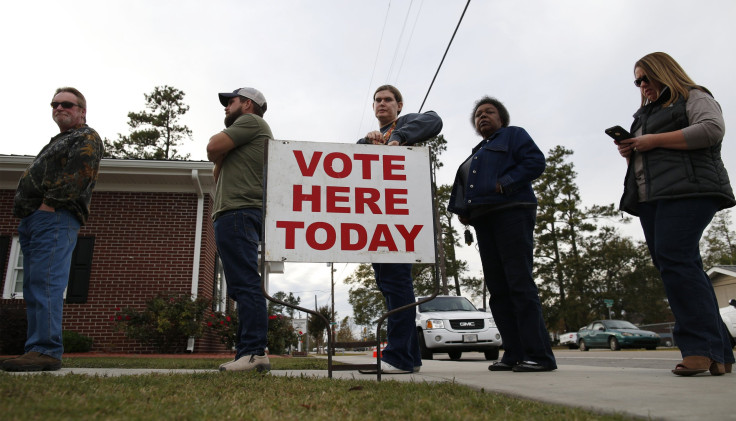Is Voter Fraud Real? In Spite of Donald Trump Claims, Studies Show Americans Are More Likely To Be Struck By Lightning Than Commit Voter Fraud

President Donald Trump called for a "major investigation" into voter fraud in a tweet Wednesday morning, promising to "strengthen up" voting procedures if necessary. The tweet came two days after the president claimed between two to five million unauthorized immigrants illegally voted in November's election, and a day after White House press secretary Sean Spicer defended the claim.
Neither Trump nor Spicer cited any evidence for their charge, and it's not hard to see why: there is no evidence to support such a claim, and research has shown that rates of voter fraud in American elections are infinitesimal. One study found that an American is more likely to be struck by lightning than impersonate another voter.
A 2014 study featured in the Washington Post found 31 instances of impersonation fraud -- when a person pretends to be someone else at the polls -- out of more than 1 billion votes cast between 2000 and 2014. A Justice Department unit examined the 2002 and 2014 elections and found that .00000013 percent of votes were cast fraudulently. One study by a Columbia University professor said when fraud was rarely reported, it could be traced to "false claims by the loser of a close race, mischief and administrative or voter error." Based on available research into past elections, if Trump is correct in his claims, it would mean that the 2016 election had rates of voter fraud at a scale unseen in past elections.
The nonpartisan National Association of Secretaries of State, which represents the chief election officers of 40 states, issued a statement Tuesday denying Trump's claim. "We are not aware of any evidence that supports the voter fraud claims made by President Trump, but we are open to learning more about the Administration’s concerns," the statement said. "In the lead up to the November 2016 election, secretaries of state expressed their confidence in the systemic integrity of our election process as a bipartisan group, and they stand behind that statement today.”
If voter fraud was being committed on a massive scale, it would be because voting laws are so lax that nobody is being caught. That's what some Republican state officials have argued, while seeking new powers to investigate and prosecute voter fraud. Trump administration adviser and Kansas Secretary of State Kris Kobach convinced the Kansas legislature to grant him the authority to prosecute voter fraud in 2015, making him the only secretary of state in the nation with such powers. In the year that followed, Kobach won four cases against fraudulent voters. All were men 60 years or older who double-voted and were charged with misdemeanors, the Kansas City Star reported.
So if voter fraud isn't a problem, and Trump won November's election, why is the president making it an issue? Trump's insistence on widespread voter fraud follows a familiar Republican strategy of using claims of voter fraud to make voting more difficult, usually through implementing voter ID laws. In July, a federal appeals court struck down North Carolina's 2013 photo identification voting law, citing the discriminatory effects of the law.
"Although the new provisions target African Americans with almost surgical precision, they constitute inapt remedies for the problems assertedly justifying them and, in fact, impose cures for problems that did not exist," the court said.
© Copyright IBTimes 2024. All rights reserved.












